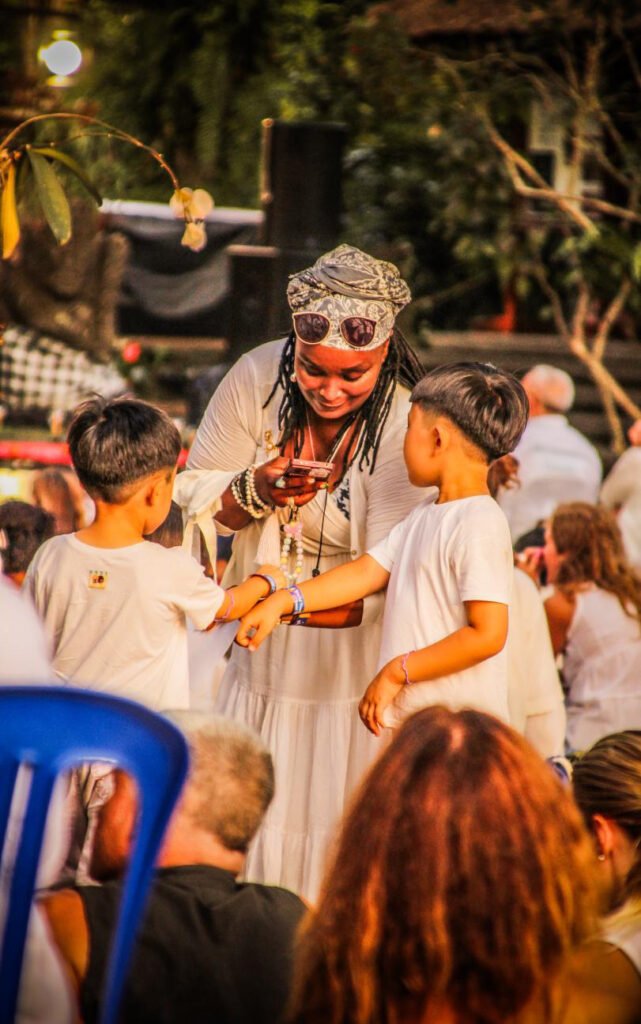In the lush, serene setting of Ubud, Bali, the Empathy School stands as a beacon of innovative educational practices, and at its core is the Wellness Department, directed by none other than Ms. Tendai. Her journey from vice principal to the Director of Wellness is a narrative rich with compassion, leadership, and transformative impact.
As we sit in her comfortably appointed office, surrounded by soft lights and calming colors, Ms. Tendai reflects on her initial days at the school. “When I first started, the school was just a budding project, only four months old,” she shares, her voice warm and inviting. “But even from that early stage, it was clear that nurturing the emotional and mental wellness of our community was going to be essential.”
Her role evolved naturally, driven by her background in family and child therapy and her intrinsic understanding of the need for emotional support in educational environments. “The idea,” she explains, “was not just to create a safe space but a nurturing ground where both students and teachers could flourish.”
The conversation turns to her daily interactions, which she describes with evident passion. “It’s about those small moments,” Ms. Tendai says, pausing as a young student peeks through the door, hesitating. With a gentle smile, she waves him in. “Hey, what’s up?” she asks as the boy approaches, not with words but with an open, comforting hug. “Sometimes, they just need this,” she whispers after the boy nods and runs back to class.
This simple yet profound interaction exemplifies her approach. Ms. Tendai’s office is a magnet for those seeking comfort and understanding. She recounts instances where teachers come to her, sometimes just to cry and let out their frustrations. “It’s crucial,” she insists, “that our teachers are well because if they are okay, the kids are going to be okay. It’s all interconnected.”
Empowering teachers has become a focal point of her role. “Initially, I would resolve conflicts directly, but I’ve learned the importance of empowering our teachers to handle situations themselves.” She shares an anecdote about a teacher who once felt overwhelmed by a challenging student. “The teacher came to me, not for a solution but for guidance on how to approach the student differently.”
This shift towards empowerment is not accidental but a deliberate strategy to foster a resilient community. Ms. Tendai has seen the benefits. “Teachers feel more confident, and students respect them more when they see that issues can be resolved without always escalating to my office.”
As we talk, it’s evident that her office, with its quiet ambiance and thoughtful design, is more than just a physical space—it’s a symbol of the school’s ethos. She points to the decor, the Rubik’s cubes on the table, and the artwork on the walls, each element carefully chosen to support and soothe.
“Our approach here is holistic. It’s not just about handling crises but preventing them, understanding the individual needs of our students and staff, and addressing them proactively,” Ms. Tendai explains. She shares a success story of a student previously labeled as troublesome, who has made remarkable progress through consistent support and understanding.
The transformation is visible. “You see him now, interacting with his peers, engaging in class, and he’s like a different person. It’s night and day,” she beams, pride evident in her tone.
Our conversation concludes with Ms. Tendai expressing hope for the future. “We’re planning to expand, to incorporate more aspects of wellness—physical activities, nutritional advice, and more. We want wellness to be woven into the very fabric of our school culture.”
As I leave her office, the sounds of laughter and playful chatter fill the air, a testament to the vibrant, nurturing community that Ms. Tendai and her team have cultivated. In Empathy School, wellness is not just a program; it’s a way of life.


 Previous Post
Previous Post